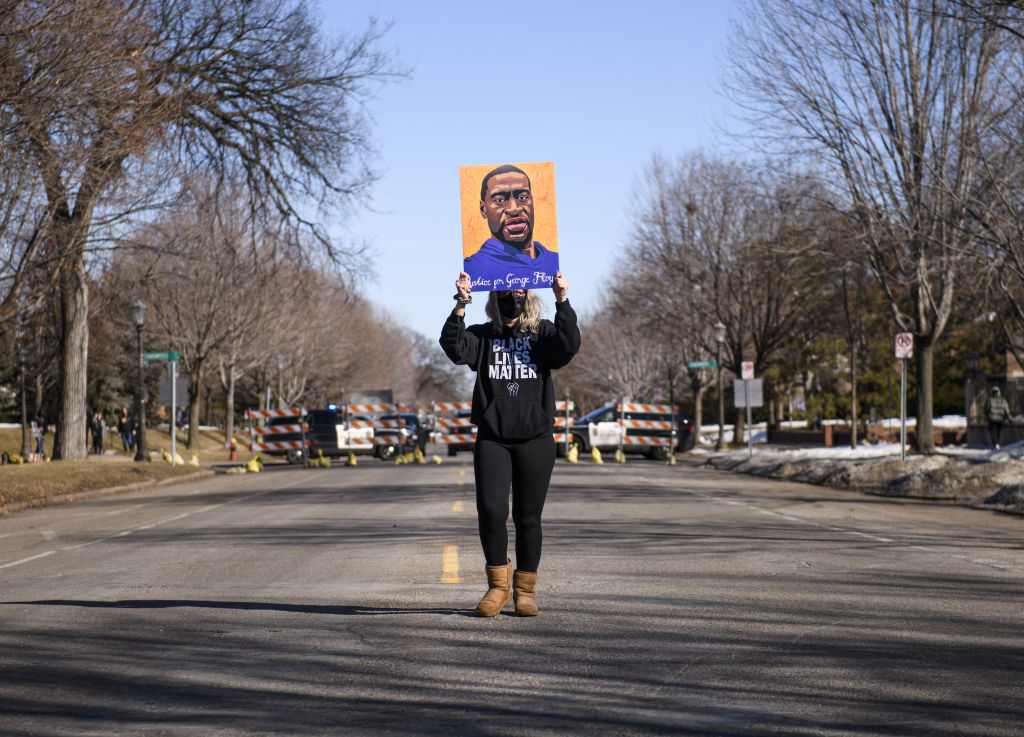Five Years After George Floyd: Three Lessons For The Future Of Our Movements

Five years ago, the world watched George Floyd die with a police officer’s knee on his neck. A 17-year-old girl, Darnella Frazier, held her phone steady and forced the world to see what Black communities have known for centuries: the police do not keep us safe. In the weeks that followed, uprisings swept the globe. “Defund the police” became both a slogan and a demand. Budgets were challenged, systems questioned, and for a moment, the impossible seemed within reach.
Now, five years on, many of the wins have been clawed back. Police departments are bigger, bolder, and more militarized. Abolitionist demands are ridiculed or ignored. Liberals who once raised fists or promised donations in solidarity have fallen silent—or joined the backlash.
But what cannot be undone is the shift in public consciousness. Because what we did in 2020 was not just political. It was narrative. We told the truth in a way the world could not unsee.
I’ve spent the last decade building narrative strategy alongside the Movement for Black Lives, rooted in a centuries-long Black Radical Tradition. We have always known that power lives in story. To make abolition make sense, we have to fight not just for policies, but for meaning. Five years after George Floyd’s murder, that fight continues. And from it, we carry three lessons.

1. The state will always try to control the story, so we must tell our own
The story of policing has always been a story of control. From slave patrols to broken windows policing, dominant narratives have cast Black people as inherently criminal, immoral, or undeserving of protection. These stories have never been accidental—they are designed to justify violence, legitimize inequality, and make injustice look like “public safety.”
In 2020, our movement flipped that narrative. We recast Black suffering as state-sanctioned violence—harm produced, promoted, and institutionalized by the state. We said the problem wasn’t “bad apples,” it was the tree. The system. The soil. We offered a different framework for safety—one rooted in care, not cages.
And we were punished for it. The defund movement faced a coordinated state response: federal charges, surveillance, and media smear campaigns. Our opponents understood what we already knew—when you change the narrative, you change what people believe is possible. That’s why the state clings so tightly to its stories, and that’s why we must keep telling ours.
2. Narrative power alone won’t save us, but we can’t win without it
Narrative doesn’t change material conditions on its own. But it shapes what people are willing to fight for. And in 2020, millions were willing to fight. Not just for convictions or body cameras, but for a radical shift in how we think about justice, safety, and belonging.
In cities across the U.S., police budgets were slashed, schools removed police officers, and new departments of public safety were proposed. Though many of those gains have been reversed, the idea of defunding police is no longer fringe. It’s part of the debate. That’s narrative power.
But the backlash has taught us something, too: we must treat communications like we treat organizing. Not as decoration, but as discipline. Not as messaging, but as strategy. Because our opponents are building disinformation ecosystems while we’re still asking if comms is “core.”
If the battleground is meaning, every day people, activists and organizers must be strategists. And our movements must be ready to fight—and fund—the long game.
3. We are in an ideological contest for the future, and it’s far from over
We live in a time of rupture. The post-racial myth has collapsed. Neoliberalism is losing its grip. The U.S. empire is in visible decline. And reactionary politics—from book bans to anti-trans laws to outright fascism—is rushing in to fill the void.
The right has a story ready: law and order, nostalgia, scapegoats. A past that never was, and a future built on fear.
So we must meet that with a story of our own.
Our movements are not just resisting systems—we are rehearsing new worlds. Worlds where mutual aid replaces punishment. Where safety means food, housing, and healthcare, not force. Where Black people, Indigenous people, queer and trans people, immigrants, and all of us who’ve been deemed expendable, are not just protected—but prioritized. Where Palestine is free.
This story isn’t utopian. It’s already being lived in encampments, kitchens, classrooms, and community bailouts. It’s being told in art, music, organizing, and policy fights. It is rooted in memory and propelled by imagination.
And it must be nurtured, sharpened, and amplified.

The question now is not whether George Floyd’s death changed anything—it did. The question is: Who has the power to shape what comes next? The Movement for Black Lives has always known the answer to that question: we do.
Five years ago, a teenage girl dared to tell the truth. Today, it is our turn to keep telling it—boldly, strategically, and together.
Let’s make sure they don’t get the last word.
Shanelle Matthews is the former Movement for Black Lives communications director and a Distinguished Lecturer at City College of New York. She is the co-editor of Liberation Stories: Building Narrative Power for 21st Century Social Movements.
SEE ALSO:
Never Forget What Happened To Michael Brown
Musk And Shapiro Want Trump To Pardon Chauvin For Killing George Floyd

